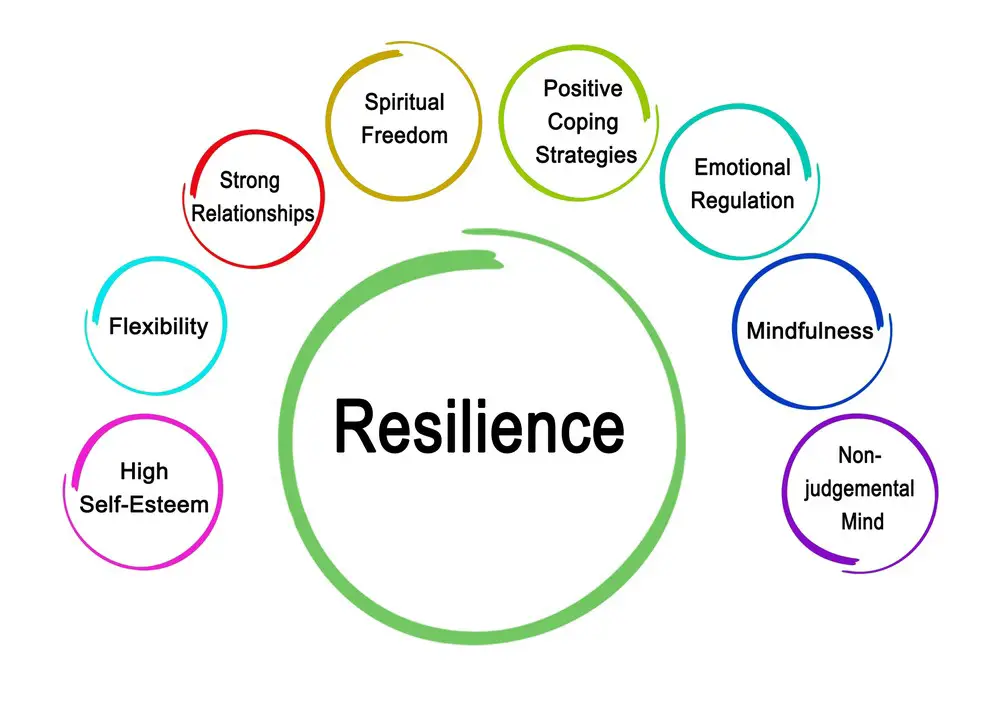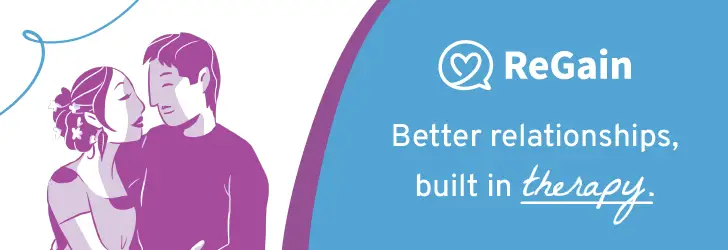As a BetterHelp affiliate, we receive compensation from BetterHelp if you purchase products or services through the links provided
To uncover the secrets of a strong and healthy relationship, we asked nine experts, including a Clinical Psychologist and a CEO, to share their insights. From cultivating curiosity and active listening to offering empathy and emotional validation, these professionals provide a wealth of knowledge on how couples can cultivate these underlying principles. Dive into their wisdom to strengthen your relationships.
- Cultivate Curiosity and Active Listening
- Harness Emotional Intelligence
- Prioritize Honesty
- Promote Personal Harmony and Mutual Respect
- Maintain a Continuous Effort to Impress
- Respect Individual Autonomy
- Foster Open Communication
- Build Connection Through Empathy
- Offer Emotional Validation
 1. Cultivate Curiosity and Active Listening
1. Cultivate Curiosity and Active Listening
While the newness of a relationship wears off with time, a curious mindset nurtures a strong, healthy, and enduring partnership. Curiosity is the desire to learn more about your partner, actively listen, and absorb what your partner shares.
There’s something contagious about curiosity. Curiosity invites optimism, openness, and empathy into the relationship, and sharing more deeply nurtures intimacy. Find a moment each day to be present with your partner, ask a simple question, and be open to what may be unexpected and engaging in this connection.
Lisa Macias, Clinical Psychologist, Mindful Child & Family Therapy
2. Harness Emotional Intelligence
When building a strong and healthy relationship, one principle that often stands out is Emotional Intelligence (EI). Now, I’m not just talking about understanding your partner’s feelings but also about recognizing and managing your own emotions. Cultivating EI starts with self-awareness.
For example, during my coaching sessions, I often encourage couples to take a moment, breathe, and reflect on their emotions before acting impulsively. This pause can transform a potential argument into a more constructive and empathetic conversation. I’ve seen couples who’ve embraced this approach experience deeper connections and fewer misunderstandings or conflicts.
Bayu Prihandito, Psychology Expert, Life Coach, Founder, Life Architekture
3. Prioritize Honesty
Honesty, openness, and communication are the most important things in a relationship. This doesn’t need to happen all the time, but it should occur regularly, and communication should be given more attention and time if there is something you need to discuss, discover, or decide upon.
Often, people consult psychics because their relationship is the equivalent of two strangers living in the same home. They go shopping, watch television, sit and eat together, and discuss things like the weather, but they never share their emotional thoughts or needs. If a couple can get used to sharing their thoughts honestly, they have a far better chance of being happy and lasting.
Coral Bailey, Web Clairvoyant Psychic, Psychics
4. Promote Personal Harmony and Mutual Respect
From my experience—and my experience is varied—I married at 34 and had many co-dependent and difficult relationships before that. To build a healthy relationship, you need to be a healthy person yourself.
Now, my husband and I have the kind of relationship many people envy, and we are confident that our lives are worthy of being an example to others and learning in the school of happiness. We respect each other, give each other freedom to make decisions and pursue hobbies, and do a lot of things together: picking out and fixing a car together, picking out a house together, and now doing renovations together.
I think one of the crucial components of a healthy relationship is the absence of hurry, admiration of each other’s personality, and calmness and harmony inside. When experiencing a personal inner harmony, you can create the same kind of relationship.
Tetiana Havrylina, Copywriter, DDI Development
5. Maintain a Continuous Effort to Impress
The strongest, healthiest relationships still have a sense of wanting to impress each other. You need to dress up, look good, and want to impress the other person. The couples who continue to work hard at impressing each other often remain happy and strong for long periods.
Putting in that effort makes a difference for both sides of a relationship, and it can make you feel better about yourself, which often means you’ll be more receptive to your partner’s efforts. If a relationship loses the aspect of wanting to impress the other person, the participants might put in less effort, and things could slip. Don’t let that happen!
Dr. MJ Rowland-Warmann, Clinical Director, Smileworks
6. Respect Individual Autonomy
Being together is very important in a relationship, and it’s equally vital to respect individuality. After entering a relationship, both partners must receive equal respect, opportunity, and support to pursue their interests and hobbies. This way, both partners can continue to grow as individuals while maintaining a strong bond in the relationship.
Steven Wright, Co-Founder and Chief Editor, Lifestyle to the MAX
7. Foster Open Communication
One underlying principle of a robust and wholesome relationship is open communication. This principle transcends all relationships because it forms the bedrock upon which mutual understanding, trust, and genuine companionship flourish.
Open communication isn’t merely about expressing one’s thoughts and feelings; it is a bilateral process that involves active listening, understanding, and constructive feedback, which encourages transparency, bolsters trust, and dwindles the room for assumptions and misunderstandings.
Couples must exercise patience and engage in regular heart-to-heart conversations to cultivate this principle. Sensitive matters should be dealt with empathy and kindness, focusing more on resolution than apportioning blame.
Precious Abacan, Content Marketer, Softlist
8. Build Connection Through Empathy
Empathy is the silent bridge that connects two souls in a relationship. It involves truly understanding, without judgment, the feelings and perspectives of your partner. When both parties practice empathy, misunderstandings diminish, and genuine connection thrives.
To cultivate empathy, couples should prioritize active listening, putting aside distractions to truly hear and feel what the other is expressing. Listening, reflecting, and asking questions is essential to deepen understanding. With time and practice, this compassionate approach can transform interactions and deepen the bond between partners.
Riyaz Khatri, Founder, Jusebeauty
9. Offer Emotional Validation
In a strong and healthy relationship, offering empathy, understanding, and emotional validation is paramount, whether navigating moments of joy or facing challenges. Heart involves genuinely stepping into your partner’s shoes to grasp their emotions and perspectives.
Understanding goes beyond recognition to actively comprehend your partner’s feelings, thoughts, and needs. Emotional validation acknowledges your partner’s emotions as valid and vital, creating an environment where they feel heard and valued.
During moments of joy, sharing in their happiness amplifies the positive feelings and strengthens the connection. In challenging times, showing empathy and understanding offers much-needed support and reassurance, allowing your partner to feel safe in expressing their vulnerabilities.
Cultivating these qualities nurtures a deep emotional bond and establishes trust, laying the foundation for a resilient relationship that flourishes in all circumstances.
Bill Lyons, CEO, Griffin Funding
 Our Takeaways & Analysis
Our Takeaways & Analysis
The insights shared by our panel of nine experts offer a holistic blueprint for developing a strong, enduring relationship. The collective wisdom reflects a nuanced understanding that relationships are intricate systems requiring emotional finesse and practical skill sets. Here are some key takeaways and our thoughts:
Top Themes Across the Board
- Self-Awareness: The advice emphasizes knowing yourself before fully engaging with another person. This self-awareness extends to understanding your emotions, needs, and desires.
- Active Listening: This isn’t just about hearing the words but absorbing the sentiment and the underlying emotion. It’s a two-way street that necessitates openness and vulnerability.
- Mutual Respect: Respecting individuality, space, and autonomy allows personal growth, which enriches the relationship.
Tips to Put These Principles into Practice
- Start Small, Aim High: Relationships don’t transform overnight. Integrate one principle at a time, starting with something as simple as dedicating ten minutes daily to undistracted conversation.
- Take the Emotional Temperature: Check in with each other regularly to gauge emotional well-being. This can help in preempting conflicts and misunderstandings.
- Be Intentional: From planning date nights to acknowledging the small things, the devil is in the details. The little efforts count.
Intersectionality in Advice
Interestingly, many of these principles overlap and feed into one another. For instance, ’empathy’ isn’t just an isolated trait but enhances open communication, emotional intelligence, and honesty. This suggests that cultivating one positive trait can have a domino effect, improving other areas of the relationship.
Don’t Forget the Fun!
While these principles largely focus on the emotional and psychological aspects, let’s not forget the importance of fun, laughter, and shared experiences. These relieve stress and create lasting memories that strengthen the bond.
A Final Word
Relationships are dynamic, ever-evolving entities. These expert insights serve as a robust framework; remember, each relationship is unique. Don’t be afraid to take what works for you and adapt as you go along. The key lies in mutual efforts, genuine love, and the willingness to grow together.
 When to Seek Professional Help: The Telltale Signs
When to Seek Professional Help: The Telltale Signs
Knowing when to seek professional help, like therapy, can be critical in relationship maintenance. While it’s normal to experience highs and lows, there are certain red flags you should keep an eye on:
- Communication Breakdown: If you find that conversations more often turn into arguments and constructive discussions are few and far between, that’s a sign.
- Trust Issues: A lingering absence of trust can corrode the foundation of any relationship. If you can’t seem to rebuild it on your own, consider seeking help.
- Emotional Distance: Do you feel like ships passing in the night, even when you’re in the same room? Emotional detachment should not be ignored.
- Recurring Problems: An outside perspective might benefit if you circle the same issues without progressing.
What’s the Goal? Charting Progress in Therapy
Whether considering individual or couples therapy, you must outline clear goals. These could be as specific as resolving conflicts around finances or as broad as improving communication skills. As you progress, you’ll ideally notice:
- Better Emotional Regulation: Both partners should find it easier to manage their emotions in challenging situations.
- Enhanced Understanding: You’ll understand what your partner says and what they mean, effectively reading between the lines.
- Renewed Affection: Therapy often reignites the emotional connection that may have waned over time, renewing the sense of partnership and mutual affection.
Solo Mission or Dynamic Duo: Individual vs. Couples Therapy
The choice between individual and couples therapy often depends on the issues and your relationship’s overall health.
- Individual Therapy: If the challenges you face are personal and impact the relationship indirectly, individual therapy could be more beneficial. It’s a space to work on yourself, which can help the relationship.
- Couples Therapy: Couples therapy is often more appropriate when the issues are mutual or involve both partners directly. It provides a neutral ground for both individuals to express their concerns and work together toward resolution.
A Creative Twist: Mix it Up!
It’s not written in stone that you have to choose one over the other. Many couples find a hybrid approach beneficial—each partner may attend individual sessions to work on personal issues and joint sessions to tackle relationship challenges.
Wrapping it Up: The Therapy Journey
Incorporating therapy isn’t an admission of failure; it’s a proactive step toward a stronger relationship. It’s about fine-tuning your emotional engines and greasing the relational gears. Therapy is a commitment to each other and the relationship’s future. So, don’t view it as a last resort, but as a robust tool in your relationship toolkit.
 Move beyond pain and confusion together.
Move beyond pain and confusion together.
? Jacob Maslow: The Journey, The Grit, The Transformation ?
Hey there, I’m Jacob, and let me tell you—life has been one wild rollercoaster. ?
? From Sky-High Towers to Home Sweet Home ?
I was one of the fortunate ones to survive 9-11, working on the 101st floor. That experience changed me forever. The loss of over 1,000 co-workers was a defining moment in my life, urging me to reevaluate everything. I transitioned from the hustle and bustle of corporate life to working from home, which impacted my career and reshaped my family dynamic.
? Dad by Day, Everything Else by Night ?
Juggling career ambitions with being the primary caretaker for my kids wasn’t a cakewalk. But man, it was worth it! My ex worked full-time and often nights, so I took the helm at home. Through thick and thin, our kids thrived in the love and balance we created for them.
? Two Castles, One Kingdom ?
When my ex and I separated, we co-parented with finesse. Our kids lived in two households but stayed close-knit. We kept the magic alive for family movie nights, impromptu picnics—you name it.
⛈ The Storm That Shook Our World ?
But life throws curveballs. Over the past year, my ex completely cut me off from our kids. Now I’m in a spacious 3-bedroom apartment, and let me tell you, those empty bedrooms hit hard. They’re not just rooms but echoes of laughter, bedtime stories, and whispered secrets.
? Sprouting Hope with BetterHelp ?
In navigating this heart-wrenching phase, BetterHelp has been my lifebuoy. As an affiliate, I can’t recommend them enough. They have provided me with coping strategies for my current circumstances and have also been valuable to my mental health journey. And for those in rocky relationships, check out Regain.us, BetterHelp’s platform for couples. Trust me, the guidance you’ll receive is second to none.
So that’s a slice of my life. I’ve seen them all: ups, downs, twists, and turns. And guess what? I’m still standing, hopeful, and endlessly grateful for the tools and support that helped me forge ahead. ?
Sending you vibes of resilience and courage, ?
Jacob ✌️

- 3 Ways Wearing a Hat Can Help Lower Your Stress Levels - April 19, 2025
- Breaking the Silence: Why Men’s Mental Health Matters More Than Ever - April 15, 2025
- How to Transform a Home’s Patio Space into a Relaxing Space - March 23, 2025
This site contains affiliate links to products. We will receive a commission for purchases made through these links.


 1. Cultivate Curiosity and Active Listening
1. Cultivate Curiosity and Active Listening
 Our Takeaways & Analysis
Our Takeaways & Analysis When to Seek Professional Help: The Telltale Signs
When to Seek Professional Help: The Telltale Signs
